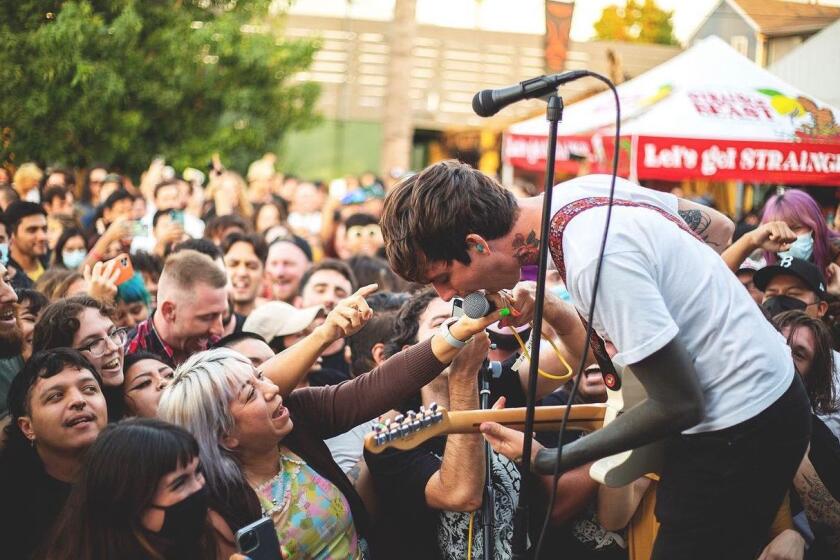
- Share via
On paper, Super Evil Genius Corp. might sound similar to the dozens of other digital marketing agencies that pop up around Southern California. Their core focus is to help brands and artists strategize their online presence and campaigns while keeping an authentic voice. They’ll also keep track of key performance indicators, and they have an in-house creative team — something that’s not entirely necessary for a digital agency, but extremely useful and practical nonetheless.
But in practice, the ethos guiding Long Beach-based business is far from normal.
For one thing, founders Ryan Jaso, 40, and Colby J. Reis, 33, insist that every full-time employee on the Super Evil Genius team comes into the office everyday. While that may seem an archaic relic of boomers past, they found that collaborating in the office makes everyone more productive and everything goes a lot smoother on a daily basis. It’s why they created a cool, modern office located just outside the Long Beach airport where their fellow millennial and Gen Z employees would actually want to work every day.
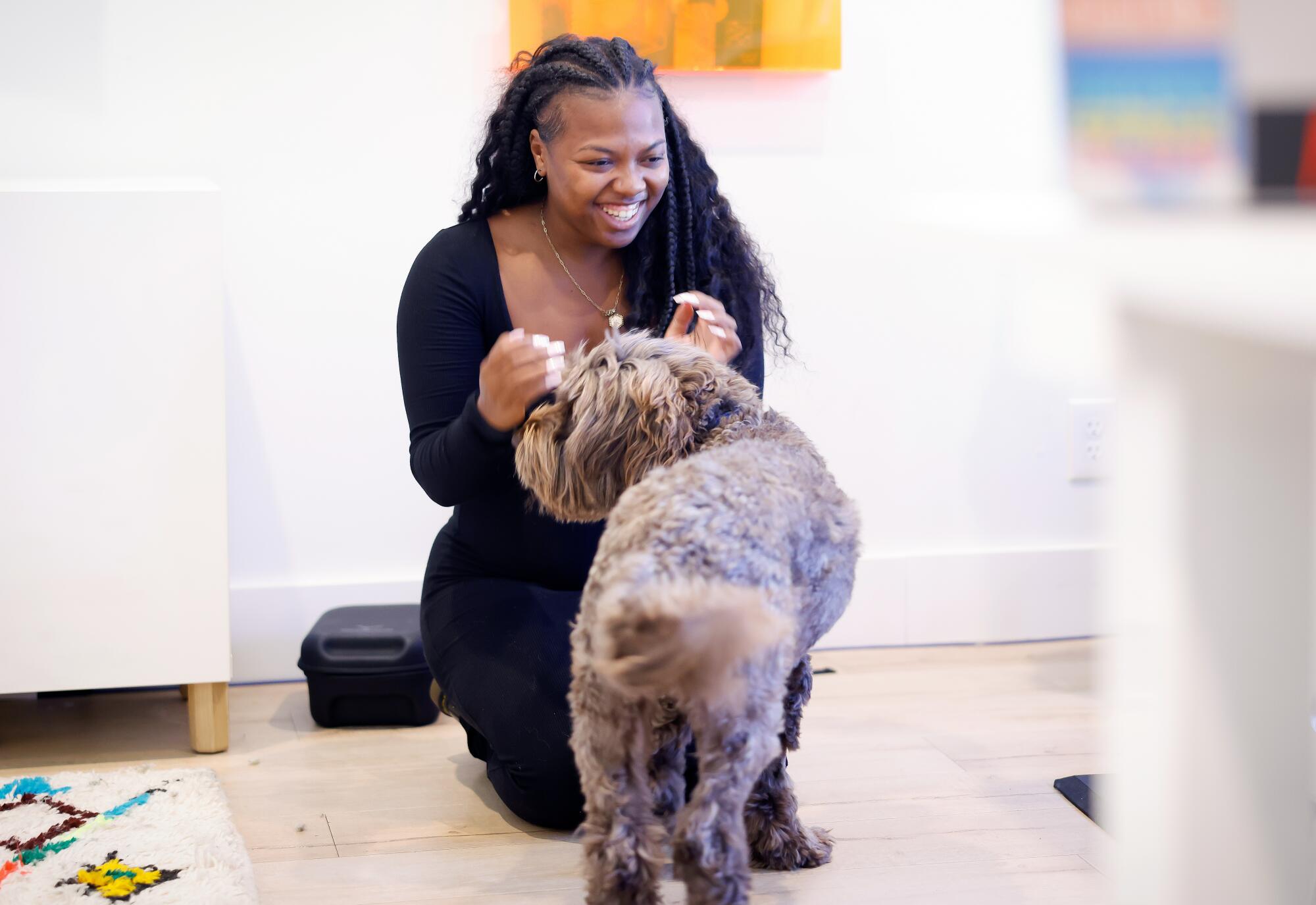
In their second-floor lair, two green-tinted modern phone booths line the entrance wall for private calls and remote meetings, while a short hallway leads to individual offices for some of the execs and sales team. But the bulk of the office space is dedicated to an open common area that looks more suited for hanging out than grinding away at a desk. Couches and a coffee table separate the hanging barn door to Jaso’s office from the full kitchen and massive wooden dining table that could’ve been perfectly at home in the “Sons of Anarchy” clubhouse — and on the far side of that, a “den” where roughly a half-dozen designers and other creatives work their magic.
The casual atmosphere is a far cry from the harsh lights and varying hopeless shades of gray found in most corporate settings. There are few collars and fewer ties among the Super Evil Geniuses, as exemplified by Jaso’s tattooed limbs hanging out of his shorts and oversized T-shirt as he leans back in the chair behind his oversized desk.
“Coming off of COVID, I think people slowly realized that they felt extremely isolated,” Jaso says. “Everyone was just kind of existing in their bedroom on Zoom all the time, and I think we learned that certain positions might not need the corner office in Manhattan, but that marketing and creative direction is so collaborative that you lose a lot of time and ideas just from not being in the same room together. If there’s a graphic designer, creative director and account executive working on an account all from different time zones and they’re only getting on Zoom calls together, are we getting the best work? Plus, I have three kids, so the idea of working from home is my own personal hell.”
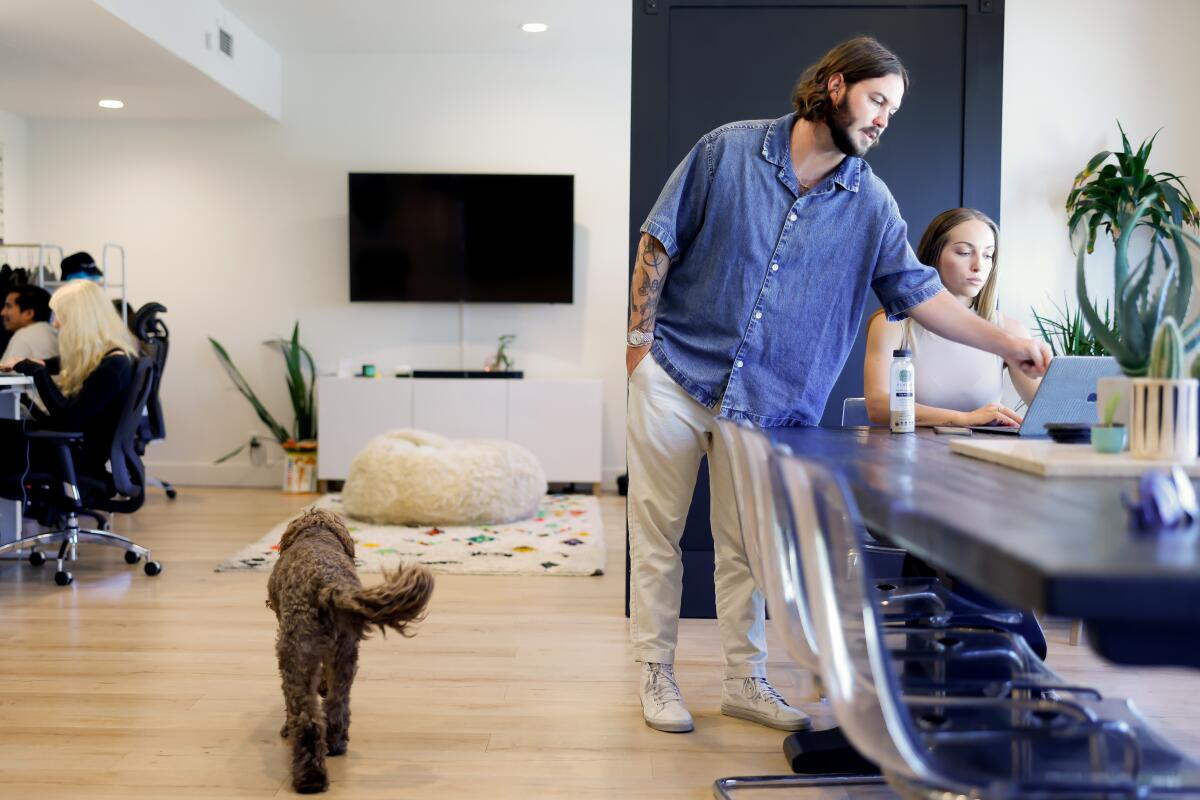



1. Co-founder Colby Reis talks with creative project manager Kirsten Kellett. 2. Kellett works in the office. All full-time employees are required to be at headquarters every day. 3. Design intern Anton Nguyen. 4. Nguyen works at the office, which was designed to be an inviting space for employees. (Christina House/Los Angeles Times)
Of course, having a positive in-person office culture for the 40-and-under crowd isn’t the only thing setting Super Evil Genius apart. Thanks to their shared background in the music industry (Reis as a growing part of LiveNation’s marketing team and Jaso’s as an artist manager and promoter) and the immediately unforgettable company name, the duo quickly built a strong word-of-mouth reputation among musical artists and event companies. From there, they opted to primarily work with clients across the unholy trinity of the music, cannabis and alcohol industries — three areas of enterprise that may not always jive with their blazer-wearing competitors — while also maintaining a presence in the beauty world as a slight outlier.
It’s a unique niche for an unconventional company, so they came up with a three-step process that works across the board.
“The first thing we do with anybody is put them through what we call ‘Brand Therapy,’” Reis explains. “It’s a disarming moment where it doesn’t matter if you’re the biggest artist in the world or some cannabis king, you get everything laid out. We get a lot of information out of that, so we learn everything we need to know and more about how this account will go straight out of the gate.
“Then everything from brand therapy runs through what we call our ‘Digital Nutrition Lens,’ which is based on the chart that tells you which food is healthy, and which is unhealthy,” Reis continues. “Media consumption is the exact same way, whether it’s TV or the apps on your phone or the workout classes you take online. So thinking about content production and digital marketing, we ask ‘Does this have nutritional value?’ because we don’t just post to post. It’s about creating things of value for this person or brand’s followers and customers. Then once we have that figured out, we move into the ‘Ammo Pack’ phase, which is the monthly allotment of content we create specifically for your media mix.”
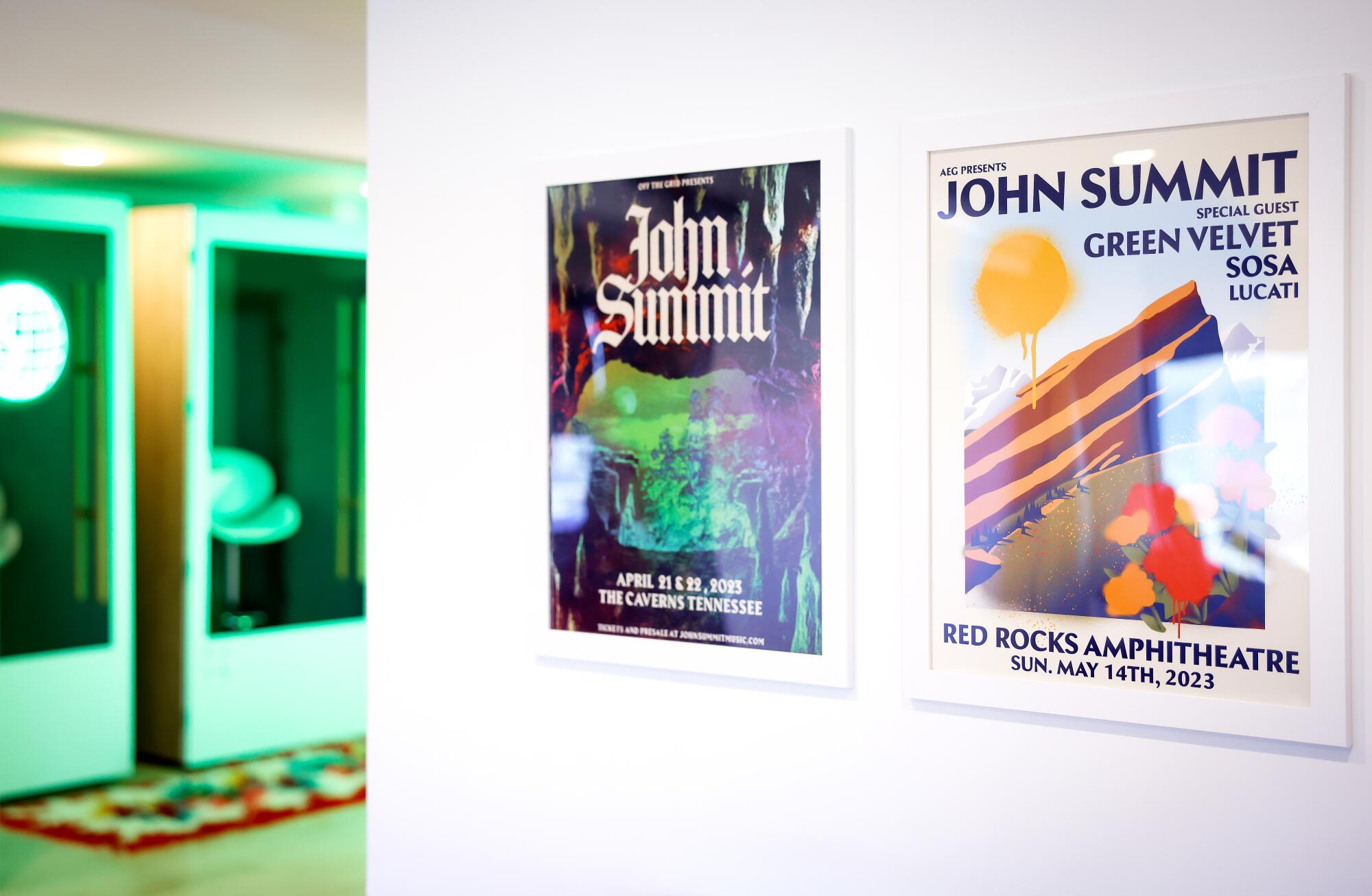
For a company that just began to come together at the end of 2018 — when the local Jaso and Portland native Reis started strategizing about how to avoid the digital marketing sins they witnessed others committing — Super Evil Genius Corp has grown at an incredible rate. Many in Reis and Jaso’s position might’ve struggled to maintain any early momentum when the pandemic took over, yet their biggest struggle was how best to expand. Even now, the office space that was supposed to cover their next several years of growth is starting to overflow just months after they moved in. It’s a good problem to have, particularly when your client list includes Goldenvoice, LiveNation and Wynn Nightclubs and your employees keep singing the company’s praises.
“I learn from every single person here,” says graphic designer Yu Jin Choi, 25, who’s been with Super Evil Genius since the beginning of 2022. “I’ve worked remote jobs before, and I think that coming into the office creates so much more growth. It helps you become a better designer and a better person. I’m honestly so thankful to be here, and it makes me want to be better for this company.”
That’s not to say things have always been easy for the Super Evil Geniuses. Building a boutique agency where every one of their dozen employees is as effective and dedicated as they are requires a whole lot more time, money and effort than just bringing in junior associates to churn out materials for unimportant clientele. And then there’s the clientele. Even just explaining the basics of digital marketing to bands and cannabis entrepreneurs can be a challenge, and factoring in the above-average prices they charge for their services doesn’t make that conversation any easier.
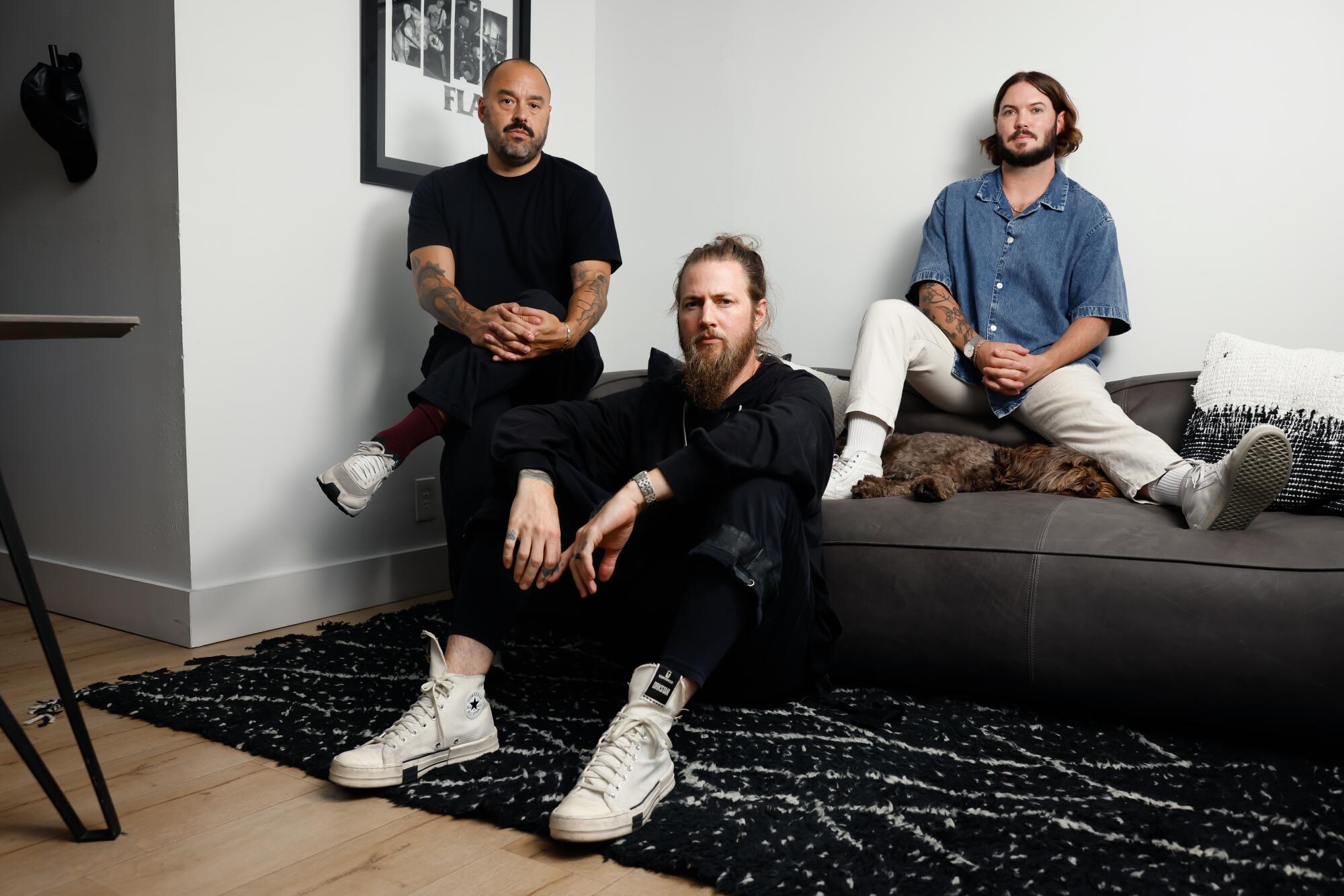
“We knew we were offering a premium product and premium service, but with a premium service, we had to convince people that it was worth paying more,” Jaso says. “To have a creative director, graphic designer and account executive all working on an account, it can’t be what people were used to paying for social media managers. We had to elevate the pricing to match what we offer. We hope that people see that we’re not just offering one thing. We can prove that we can break the mold of what things normally cost and completely change that model.”
More to Read
The biggest entertainment stories
Get our big stories about Hollywood, film, television, music, arts, culture and more right in your inbox as soon as they publish.
You may occasionally receive promotional content from the Los Angeles Times.
